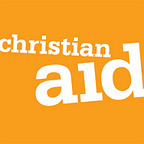Why Universal Health Coverage matters
By Laura Adams, Global Health Advisor
On 12th December 2017 we observe Universal Health Coverage Day (UHC) and this week sees a gathering of world leaders, global institutions and civil in Tokyo for the first Universal Health Coverage Forum. The UHC Forum aims to galvanize the health sector, countries, development partners, civil society and the private sector toward the common goal of UHC.
At the roll of a dice, the gamble of health coverage
When I lived in Sierra Leone, I used to travel often to a remote village called Kamakwie in the north of the country. I got to know a lot of the people who lived there and take an interest in their lives; one of them was Abubatu.
She was a single mother who owned a very small stall selling nuts, chewing gum and sweets. She made enough money to send her two children — Mohamed and Isata — to school, to pay for their uniforms and to ensure that they had the books and school items they needed. This was in contrast to a lot of the neighbouring children whose families were reliant on a local charity to cover their children’s education.
On one trip, I went to visit Abubatu and her stall wasn’t there. She was at her house with her children. She told me how she had been sick a few weeks ago and had had no choice but to sell her stall and all of the contents to pay the medical fees (the only hospital in the area was a fee charging faith based one). Since then she has found no opportunity to raise the money back to rebuy goods to sell on her stall and therefore didn’t have an income at the moment. She was really worried about how she would afford the upcoming school fees and continue to be able to send her children to school.
I couldn’t believe that just one short bout of illness had changed the situation for her and her family so drastically. Abubatu and others like her are the reason that UHC is so important — everyone should be able to access the healthcare that they need, of high quality, without suffering catastrophic costs as a result. Because out of pocket expenses can be just that — catastrophic, the difference between feeding your family and not being able to, the difference between paying your children’s’ school fees and not being able to. Imagine having to make this decision!
What is UHC?
Universal Health Coverage means that ‘Everyone has access to essential quality health services without suffering financial hardship.’
To me this comes down to equity — everyone should have access to health services and they should be allocated according to need rather than ability to pay. Currently across the globe poor people are being denied access to essential health services because they can’t afford to pay the hospital fees, or the transport costs, or travel the long distance to reach health services, or don’t have the power within their household or community to opt to access healthcare, or are dissuaded by the inevitable discrimination they will receive when they reach the health centre. All of these factors conspire against Universal Health Coverage and therefore we need to act now.
Can UHC become a reality?
SDG 3.8 pledges to achieve UHC by 2030 which is only 13 years away!
But the answer is yes, it is definitely possible but we have a lot to prioritise and achieve in order to reach that.
What are we calling for at the UHC Forum?
The WHO found that out of pocket expenses must be kept to below 15–20% of income, to avoid catastrophic costs. To achieve this, governments must increase the resources they have to spend on health through increasingly collecting money through progressive taxation.
Christian Aid, as part of the UHC2030 Civil Society Engagement Mechanism, is pushing for all governments to spend at least 5% of its GDP on health. We have to continue to empower our partners to increase access to quality health services for everyone at a country level, whilst also lobbying at a national and global level for an increased domestic financing for health. This is the most sustainable way of achieving UHC by 2030.
Too late for Abubatu
I think back to Abubatu and how, if the health services she needed to access had been comprehensive and free, her illness would not have pushed her family into deepening poverty, but sadly they weren’t. We have to keep working to ensure that they are in the future.
For more information visit our Community Health work: https://www.christianaid.org.uk/about-us/what-we-do/community-health
